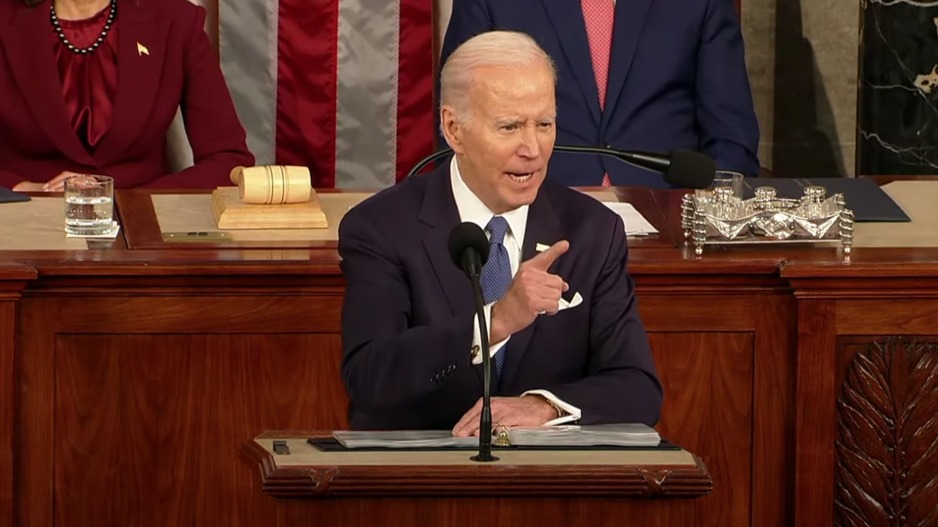Based on the track records of both U.S. former president Donald Trump and current President Joe Biden, if Canadians could vote in the November presidential elections in the U.S., it might be in their best interest to vote for the eventual Democratic presidential nominee following the latter's exit from the race over the weekend.
Biden endorsed his heir apparent, Vice-President Kamala Harris, following his Sunday announcement, offering clues as to what a continuation of a Democratic administration might offer.
Some Canadians have, in fact, already voted for the Democrats—with their feet. In 2022, more than 126,000 Canadian citizens moved to the U.S., according to Statistics Canada—the highest number in a decade.
“No matter what happens in the outcome of the election, I think this should be a wake-up call for British Columbia,” said Bridgitte Anderson, president of the Greater Vancouver Board of Trade (GVBOT).
“Last year, more people moved out of B.C. for another province than moved here. But if you look at the numbers in Canada, writ large, more people have moved out of Canada to the U.S. than we’ve seen in a decade as well.”
Some of those Canadian émigrés would have taken their businesses with them.
“The cost of scaling and running a business in B.C., compared to the U.S., is becoming untenable, and that’s why we’re seeing businesses and individuals leave,” Anderson said.
Who sits in the Oval Office matters a lot for Canadian businesses, especially those that export goods and services to the U.S.
BDC notes that Canada exports 75 per cent of its goods and services to the U.S., and is therefore vulnerable to “Buy American” protectionism.
While both Biden and Trump administrations proved protectionist, Trump was a far more aggressive and unpredictable isolationist.
“What has characterized Biden’s administration is a much more normal, predictable kind of approach to trade,” said Dennis Darby, president of the Canadian Manufacturers and Exporters (CME).
One part of Canada-U.S. trade that was hurt under Biden was energy. On his first day in office, Biden killed the Keystone XL pipeline, which had economic ramifications for Alberta oil producers as it helped maintain a discount for Alberta crude and also deterred investment in the province.
“The last eight years, for both the Trump and Biden administration, we’ve seen an increasingly protectionist approach,” Anderson said. “And we’ve seen these massive tax breaks through personal tax cuts and also the Inflation Reduction Act (IRA).”
The original draft of the act—which provides massive tax credits and incentives for electric vehicle manufacturing and other clean energy technologies—raised fears that Canadian manufacturers would be frozen out of the American electric vehicle and battery manufacturing space.
“We were very fortunate, and did a lot of work, to get the Inflation Reduction Act to include [the] manufacture of vehicles in North America,” Darby said.
The IRA provided such massive production subsidies for manufacturers to locate or relocate to the U.S. that Canada’s Justin Trudeau government found itself in a business bidding war, and ended up offering $31 billion in production subsidies and investment tax credits to get its share of the EV manufacturing pie. This approach, Anderson said, is “risky.”
“What the Trudeau government has done is it put all its eggs in one basket, in one sector,” Anderson said. “And that is a very risky approach.”
From a Canadian diplomatic and economic standpoint, Biden has been easier to deal with than Trump, and the general attitude of the White House towards trade relations with Canada will matter a great deal when the Canada-United States-Mexico Agreement (CUSMA) comes up for review two years from now.
“There are several thorny points that could emerge,” said economist Werner Antweiler, chair of International trade policy at the University of British Columbia’s Sauder School of Business.
“One concerns the automobile market, which faces challenges from potential imports from China. The U.S. has already applied tariffs on EV imports from China, and Canada has launched a countervailing duty investigation. And there are also concerns that Mexico could become a staging platform for Chinese manufacturers, which could put strains on the CUSMA relationship,” he said.
Anderson added that, on tariffs, B.C. businesses know what a Trump administration has said it will do.
“CUSMA could be quite significant when it’s opened up for review in 2026, and it could be quite negative for our economy, and that might be regardless which president is elected," she said.



